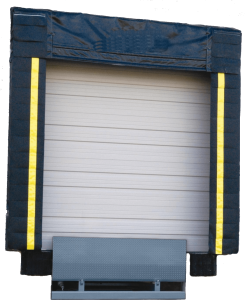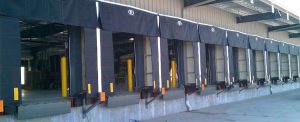The Importance of Loading Dock Seals in Industrial Operations
In the bustling world of logistics and industrial operations, efficiency and safety are paramount. One crucial component that plays a significant role in achieving these goals is the loading dock seal. This often-overlooked feature serves as a barrier between the interior of a facility and the external environment, contributing to the overall effectiveness of loading and unloading processes. In this article, we will explore what a loading dock seal is, its functions, and why it is a vital element for businesses engaged in shipping and receiving operations.
Understanding Loading Dock Seals
Loading dock seals are specialized enclosures designed to create a seal between a truck or trailer and the facility’s loading dock. They are typically made of durable materials such as fabric or foam and are strategically positioned around the dock opening to form a tight seal when a vehicle is parked.

Types of Loading Dock Seals
There are several types of loading dock seals, each catering to specific needs and requirements. The three primary types are:
Compression Dock Seals
Compression dock seals are designed to provide a snug fit around the sides and top of a truck or trailer. They utilize fabric or foam pads that compress against the vehicle, creating an effective seal. This type is ideal for facilities with a consistent range of truck sizes.
Shelter Dock Seals
Shelter dock seals combine the benefits of a dock seal and a dock shelter. They offer a broader coverage area, extending beyond the sides of the truck to provide protection against varying vehicle sizes and shapes. Shelter dock seals are versatile and suitable for facilities with a high volume of diverse truck traffic.
Inflatable Dock Seals
Inflatable dock seals use air chambers to create a seal around the trailer when it is parked at the dock. These seals are highly adaptable and effective, providing a tight closure even in situations where truck sizes may vary significantly. The inflatable nature allows for a custom fit, making them a popular choice for facilities with a fluctuating truck fleet.

The Functions of Loading Dock Seals
Loading dock seals serve multiple functions that contribute to the efficiency, safety, and overall performance of industrial operations. Some key functions include:
Temperature Control
Loading dock seals play a crucial role in maintaining the desired temperature within a facility. For businesses dealing with temperature-sensitive goods, such as pharmaceuticals or perishable items, a tight seal prevents the exchange of cold or warm air, ensuring the integrity of the stored products.
Energy Efficiency
By creating a barrier between the interior and exterior environments, loading dock seals help reduce energy consumption. Facilities can maintain a more stable internal temperature, leading to lower heating and cooling costs throughout the year.
Weather Protection
Loading dock seals act as a barrier against external elements such as rain, snow, and wind. This weather protection is essential for preventing damage to goods during the loading and unloading processes and ensures a safer working environment for employees.
Improved Safety
A properly sealed loading dock enhances safety by preventing accidents and injuries. It minimizes the risk of slips and falls, especially in inclement weather conditions, and provides a secure working environment for employees handling the loading and unloading of goods.
The Significance for Businesses
For businesses engaged in shipping and receiving operations, investing in quality loading dock seals is a strategic decision with various benefits. These include:
Operational Efficiency
Loading dock seals contribute to operational efficiency by streamlining the loading and unloading processes. They minimize downtime caused by weather-related delays and create a controlled environment that supports faster and more efficient operations.
Cost Savings
The energy efficiency provided translates into cost savings for businesses. By minimizing the exchange of conditioned air with the external environment, facilities can reduce their overall energy consumption and lower utility costs.
Product Integrity
Businesses dealing with sensitive or perishable goods rely on loading dock seals to maintain the integrity of their products. The prevention of temperature fluctuations and exposure to external elements ensures that goods arrive at their destination in optimal condition.
Compliance and Regulations
Many industries are subject to regulations regarding the storage and transportation of goods. They help businesses comply with these regulations by providing the necessary measures to safeguard products and maintain the required conditions during transportation.
Conclusion
In conclusion, they are a fundamental component of modern industrial operations. Their role in creating a secure, weather-resistant, and energy-efficient environment at the loading dock significantly impacts a business’s overall efficiency and bottom line. As businesses continue to prioritize safety, sustainability, and operational excellence, the importance of loading dock seals will only grow. Investing in high-quality loading ones is not just a practical decision; it is a strategic move that contributes to the success and competitiveness of a business in today’s dynamic and demanding marketplace.

Recent Comments